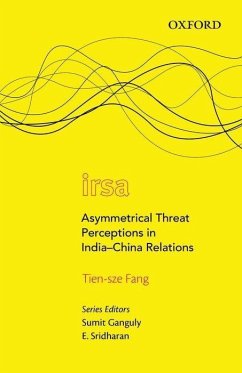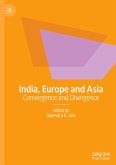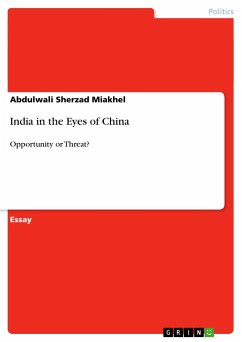The rise of China and India is undoubtedly a major feature of global politics nowadays. The interactions between the two rising Asian powers will not only exert a profound and far-reaching influence over regional security, but is also seen as a decisive factor in reshaping international order. Acknowledging that recurrent tensions seem to be a significant feature of Sino-Indian relations, people may ask: Why are China and India not able to develop long-term stable and friendly relations? To shed lights on the important relationship, this book provides a new perspective for understanding India-China relations by highlighting the asymmetry of the threat perceptions between India and China. The major issues of India-China relations, including the nuclear issue, the boundary problem, the Tibet issue, regional competition and cooperation, and India-China relations in the global context, are further examined taking an analytical approach. The book observes that India-China relations are constrained by the asymmetry between their threat perceptions, which has been a destabilizing factor in India-China relations.
Why are India and China not able to develop long-term stable and friendly relations? While trying to answer this question, this book provides a new perspective for understanding the relations between the two nations by highlighting the asymmetry of the threat perceptions between them. The major issues of India-China relations, including the nuclear issue, the boundary problem, the Tibet issue, regional competition and cooperation, and China-India relations in the global context, are further examined with an analytical approach.
Hinweis: Dieser Artikel kann nur an eine deutsche Lieferadresse ausgeliefert werden.
Why are India and China not able to develop long-term stable and friendly relations? While trying to answer this question, this book provides a new perspective for understanding the relations between the two nations by highlighting the asymmetry of the threat perceptions between them. The major issues of India-China relations, including the nuclear issue, the boundary problem, the Tibet issue, regional competition and cooperation, and China-India relations in the global context, are further examined with an analytical approach.
Hinweis: Dieser Artikel kann nur an eine deutsche Lieferadresse ausgeliefert werden.








